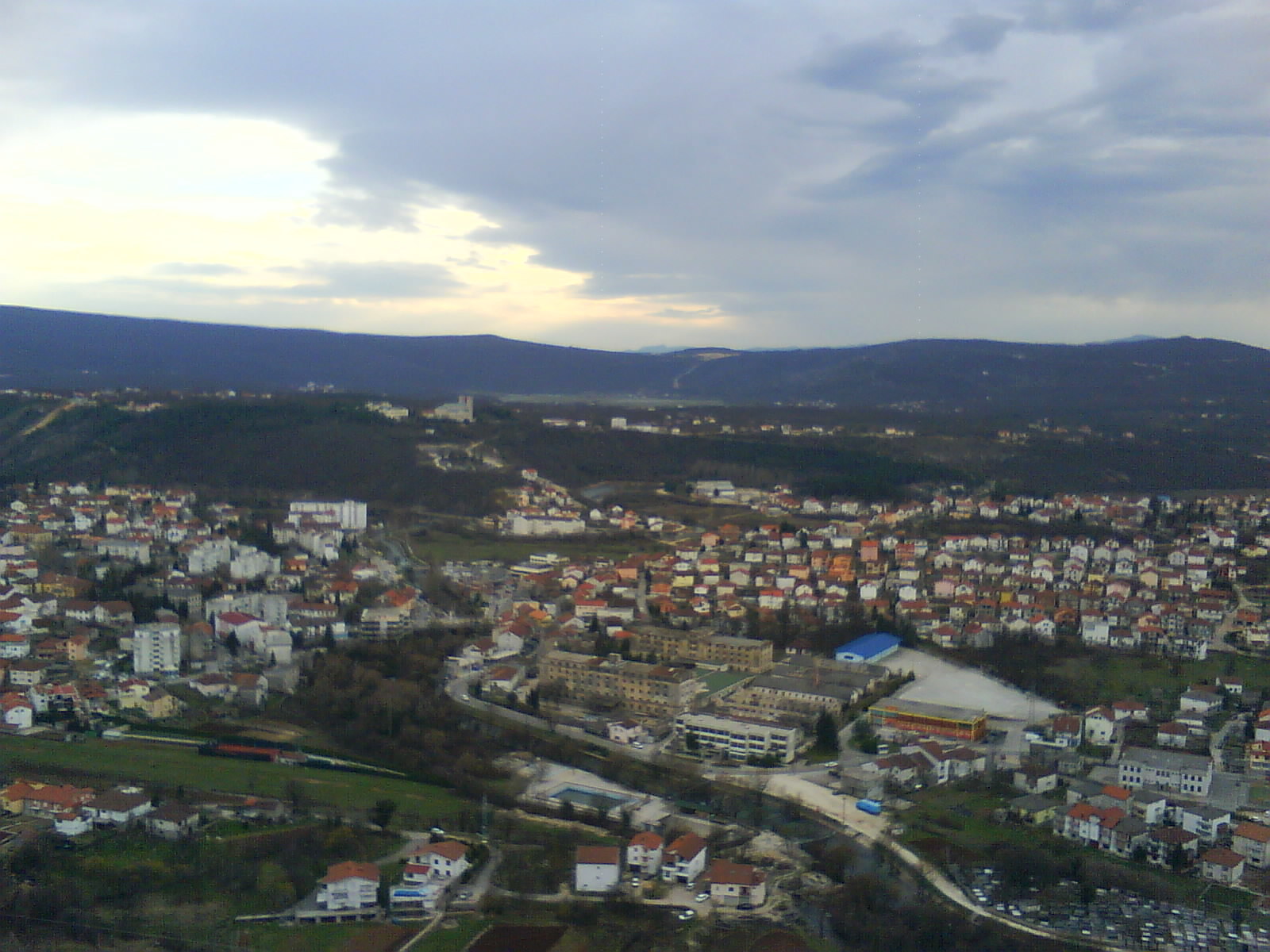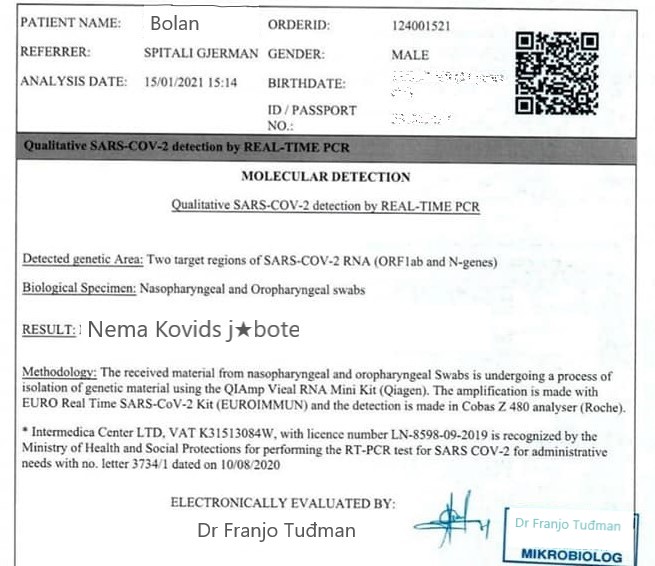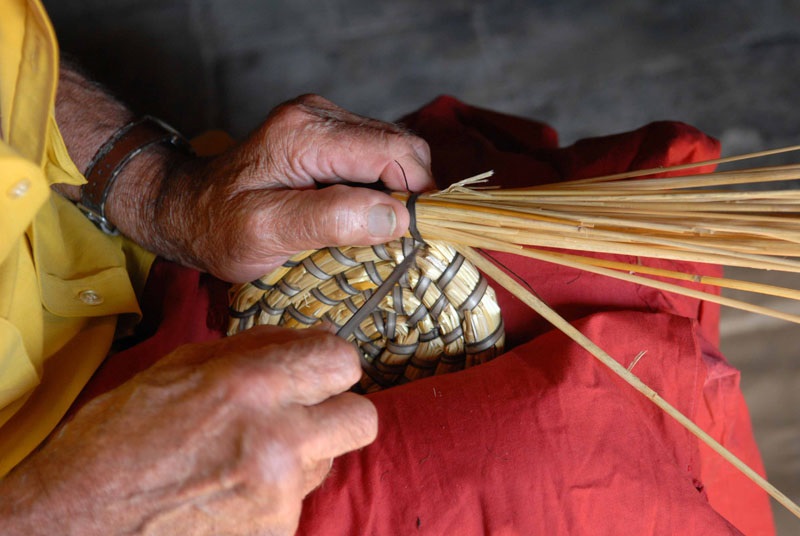All COVID19-Related Restrictions on Croatian Borders Lifted!
May 2, 2022 - Less than three weeks since the last change of the rules regarding the restrictions for the Croatian borders, all of the restrictions have been removed.
As of yesterday, any and all crossings of any Croatian borders, to any of Croatian neighbors, are exactly the same as they were in the pre-pandemic times (remember those?). Informally, we heard talk of that since Saturday evening, but today the Croatian police finally confirmed that it's the truth. The last Odluka (bylaw) describing the requirements for the Croatian border crossings was set to expire on April 30, 2022, and since no new bylaw has been issued, it means that the border crossings are no longer governed by any COVID19-related rules.
That means that everyone trying to enter Croatia, carrying any passport, coming from anywhere to any border crossing, will be allowed to enter Croatia without being asked any questions regarding COVID-19!
The Croatian police have confirmed that to various media (including the Bosnian klix.ba, who were the first ones to confirm the story yesterday) and the Croatian tportal and others.
After closely following the nightmare which was the Croatian bureaucracy's response to the COVID-19 pandemic and their policy towards border closings and managing travel, this writer can only say: finally! And, also, it is entirely fitting and in line with all of their best efforts that such a huge change went almost unnoticed, as it was not clearly made public in time that the rules have changed for so many travellers. To make matters much worse, the official website of the Croatian police created to explain the COVID-19 and borders in detail STILL has the incorrect data:

(screenshot taken at 14:45 on May 2nd, 2022)
Hopefully, they will find the time in the upcoming days to clear up the confusion and enter the correct information at the site which was supposed to be the central hub for the official information on how to enter Croatia.
Building Bridges Between Croatia, Bosnia and Serbia
February 18, 2021 – Appropriate government bodies of the three neighbours have come together and agreed to work together to improve bridges between Croatia, Bosnia and Serbia
We say building bridges between Croatia, Bosnia and Herzegovina and Serbia. It's actually more a case of renovating and maintaining bridges between Croatia and the two neighbours to the east.
Despite what journalist Zdenko Jurilj describes as “constant political skirmishes” between the neighbours, in Vecernji List's coverage of this news, the Bosnia and Herzegovina Council of Ministers and the governments of Croatia and Serbia have reached an agreement to work together in the rebuilding, maintenance and review of bridges which connect them. According to the signed agreement, each party will share 50% of the costs without, as it says, "claiming compensation from the other party, unless otherwise agreed between them."
In other words, the cost of renovating bridges between Croatia and Bosnia will be half paid by Bosnia, half paid by Croatia, the cost of renovating bridges between Bosnia and Serbia will be half paid by Serbia, half paid by Bosnia.
According to the agreement between the three governments, equipment needed for the reconstruction and maintenance of the bridges will be exempt from customs duties. Bridge managers shall make a detailed inspection of each of the bridges at least once every five years and independent experts appointed by the bridges' trustees will inspect them each year.
There are 10 bridges between Croatia and Bosnia and Herzegovina which will be jointly maintained. Most of them stretch between the countries across the Sava river, although a few cross over the Una, Maljevac and Korana rivers. A further 11 bridges between Serbia and Bosnia are within the agreement, making a total of 21 bridges to exist within the deal.
Although there are bridges between Croatia and Serbia (including at Ilok and Erdut in Slavonia), within the article published by Vecernji List there is no mention of an agreement to improve bridges between Croatia and Serbia. Following the optimistic and uplifting promise of the headline at the start of this news item, this fact is a rather more unfortunate metaphor on which to end it.
For the latest travel info, bookmark our main travel info article, which is updated daily.
Read the Croatian Travel Update in your language - now available in 24 languages
Hercegovac Begs Cro PM 'Open Borders So I Can Send My Wife To Her Mother'
January 29, 2021 – Lockdown is apparently taking a toll on one Hercegovac. The man from Široki Brijeg wrote to Croatian Prime Minister Andrej Plenković and begged him to reopen the borders between Croatia and Herzegovina so he could eject his wife from the family home for a month and send her to his mother-in-law's
The message from Hercegovac Ante Zovko (Ante Marinkov) was reposted on the Facebook page Imocki crnjaci where it picked up some 3 thousand likes in less than 6 hours.
The town, Široki Brijeg, where this particular Hercegovac (a man from Herzegovina) lives is just 35 kilometres from the border with Croatia. Lots of Croatians live in this area, including this Hercegovac, his wife and his child. But not, it would seem, his wife's mother, who apparently lives in Croatia. Široki Brijeg in Herzegovina, around 35 kilometres across the border from Croatia © Anto (talk)
Široki Brijeg in Herzegovina, around 35 kilometres across the border from Croatia © Anto (talk)
The Hercegovac's reason for wishing to eject his wife and child for a month was to change up the atmosphere for a time. One presumes he was not being entirely serious with his request.
The Hercegovac is not the first man to seemingly reach the end of his tether while restricted to staying in the family home. In April 2020, after just one month of being housebound, a man from a village near Osijek in Slavonia left his wife in the family home and went to live nearby in a tent.
Speaking anonymously at the time, the man's neighbour told the local SiB.hr news portal the couple have been happily married for 30 years. But, it seems the pressure of being around each other so closely during the lockdown was too much even for their strong union.
The neighbour was happy to report that since his friend pitched his tent in the nearby locale, relations between the man and his wife had actually returned to their usual levels of warmth and friendliness. The wife even came regularly to visit her husband in his tent. © John Waring
© John Waring
"My neighbour has been in his tent for a few days now,” he told the portal back in April. “He puts up a table and chairs in front. Occasionally our other neighbour comes over to drink some rakija (with him). I visited him too.”
The neighbour said his friend had quit the family home due to boredom more than anything else. Even after being happily married for 30 years, being around each other 24 hours a day was apparently just too much.
Perhaps in this more chivalrous response from the Slavonian man, Hercegovac Ante Marinkov could take some inspiration? After all, it's surely easier if one person departs from his family home in order to change the atmosphere than if two are forced to leave. Ante should find a nice spot in the fields nearby – not too close – and simply pitch up a tent. Problem solved! If he's lucky, his wife might come to visit bringing rakija.
45 People With Fake PCR Tests Detained At Croatian Border In One Weekend
January 19, 2021 – 45 people tried to enter Croatia with fake PCR tests this weekend alone. They were caught by Croatian police, detained at the border and reported to the State's Attorney office. If found guilty, each faces a maximum penalty of three years in prison
Some 45 people tried to enter Croatia through the borders of one county with fake PCR tests this past weekend.
Travel from Bosnia and Herzegovina into Croatia currently requires the production of a negative PCR test or a doctor's certificate proving you have successfully passed through a COVID-19 infection in recent months.
Since the ban on entering Croatia from Bosnia and Herzegovina without a negative PCR test was introduced, fake PCR tests are increasingly being forged. Border police and customs officers at crossings in Brod-Posavina County have met many people trying to cross the border with fake PCR tests. But, this weekend a new record number of forged tests were found on the county's border crossings.
According to a statement from the Brod-Posavina Police Department, as many as 45 attempts to enter the country with fake PCR tests were discovered on Saturday and Sunday.
"At the Stara Gradiška border crossing, police officers determined that 43 persons, mostly citizens of Bosnia and Herzegovina, presented fake PCR tests issued in BiH at the border control. At the Slavonski Brod border crossing, two people were registered who gave forged tests," the Brod-Posavina police reported.
Police officers file criminal charges against all those suspected of committing the criminal offence of forgery of a document with the Municipal State Attorney's Office in Slavonski Brod. If found guilty, such persons face up to three years in prison.
The overall number of people detained on Croatia's border with fake PCR tests this weekend could actually be higher - the figures of 45 persons detained with fake PCR tests were released by the police of just one county in Croatia - Brod-Posavina County. A further eight Croatian counties exist along the border with Bosnia and Herzegovina. Each has border crossings between the two countries.
Dalmatia Town Opens Migrant Donation Center: Vrgovac, Croatia
The Mayor of Vrgorac, located in the Dalmatia hinterland, who is urging citizens to donate unwanted reusable items, including clothing and footwear, to migrants. The town has made public space available to the Red Cross to receive and store donations.
Vrgorac Mayor Ante Pranić is urging all citizens not to throw away reusable furniture, clothing and footwear that they no longer need but to donate reusable items to migrants, according to Dalmacija Danas on January 21, 2020.
“I am asking citizens to reconsider throwing away clothing and footwear as well as reusable furniture. Namely, in cooperation with the Red Cross, we have agreed on another project to help the needy. I have signed a contract worth 49,287.94 HRK (6625 EUR), which deals with the reuse of empty office space that we have finally registered under city ownership after 20 years. We are allocating that office space to the Red Cross to use as a warehouse where citizens will be able to donate clothing and reusable furniture. We want to help the needy particularly with providing clothing and footwear. We are in a border area and there are often situations where we can help migrants who are in contact with MUP (Croatian Police). Our small reuse center is expected to open on March 1. I am looking forward to it,” said Pranić in a statement on Facebook.

Vrgorac is a town in Croatia located in Split-Dalmatia County, about 50km from Metković, near the border of Bosnia. According to the 2011 census report, the town has 6,572 inhabitants, the majority of whom are Croatian. Most Vrgorac residents are involved in agriculture, which includes growing and harvesting berries, grapes and various fruit trees. Craft-related industries have recently reemerged and are contributing to the local economy as well.
As Lauren Simmonds/Total Croatia News reported on January 20, 2020; Mayor Pranić recently prohibited the use of plastic packaging in Vrgorac’s official institutions and various events held throughout the year, stating that they should be replaced by glass and much more environmentally friendly, biodegradable paper packaging.
Follow our Politics page and Lifestyle page to stay updated on community-based donation efforts. For more information on Vrgorac, check out their excellent website (in Croatian) and their bilingual town guide here.
Slovenes Begin Lobbying in Proceedings Against Croatia
Croatia's immediate neighbours to the north are determined to get their way.
Crossing Borders for Medicine, Slovenia Cheaper Option?
It isn't just petrol and clothing drawing people over the borders...
Arbitration: Slovenia's Karl Erjavec Threatens Legal Proceedings Against Croatia
The festive season doesn't halt neighbourly rifts as tensions grow...
In Just Three Days, Nine People Cross into Croatia through Montenegro Illegally
Nine foreign nationals were caught illegally crossing the state border between Montenegro and the Republic of Croatia in four separate cases.
Heavy Traffic At Border Crossings and Towards Sea
HAK calls for vigilance and patience on the roads this weekend.


